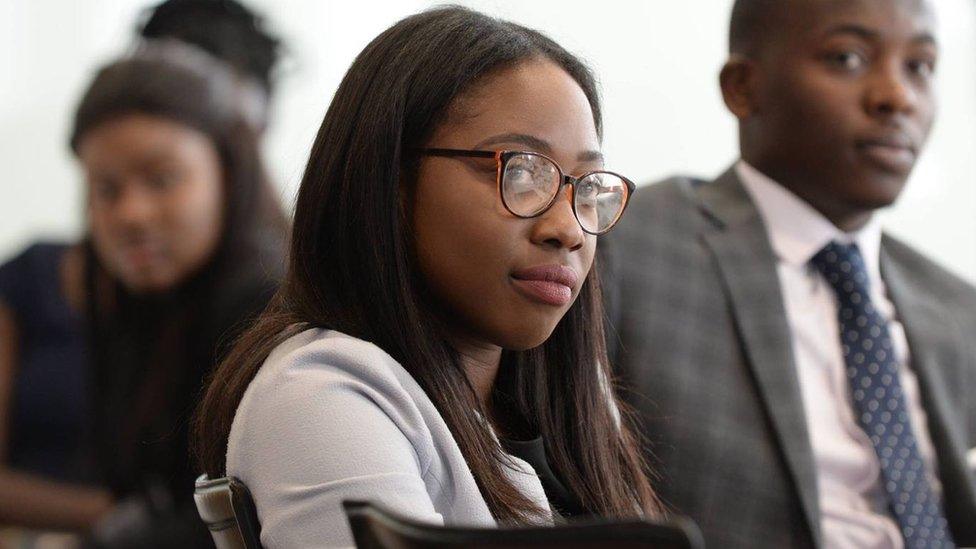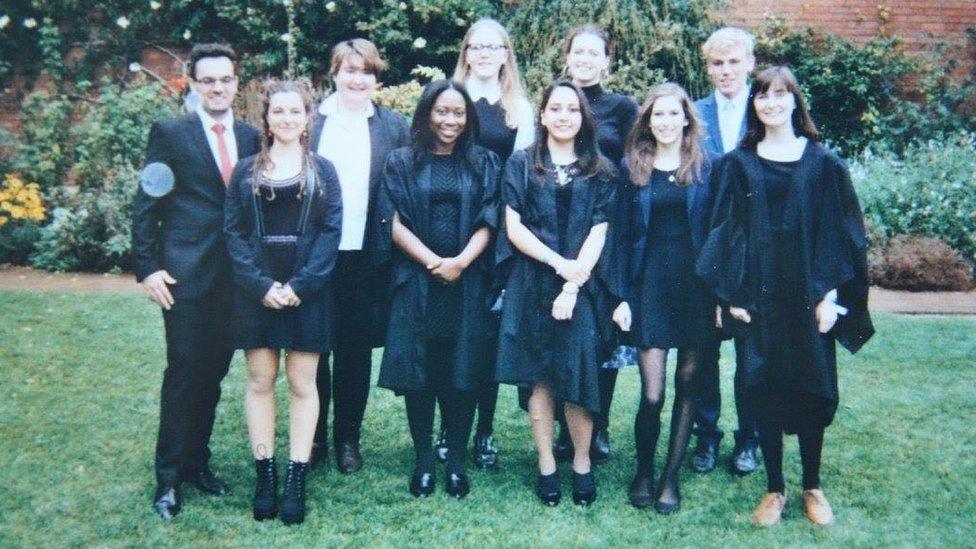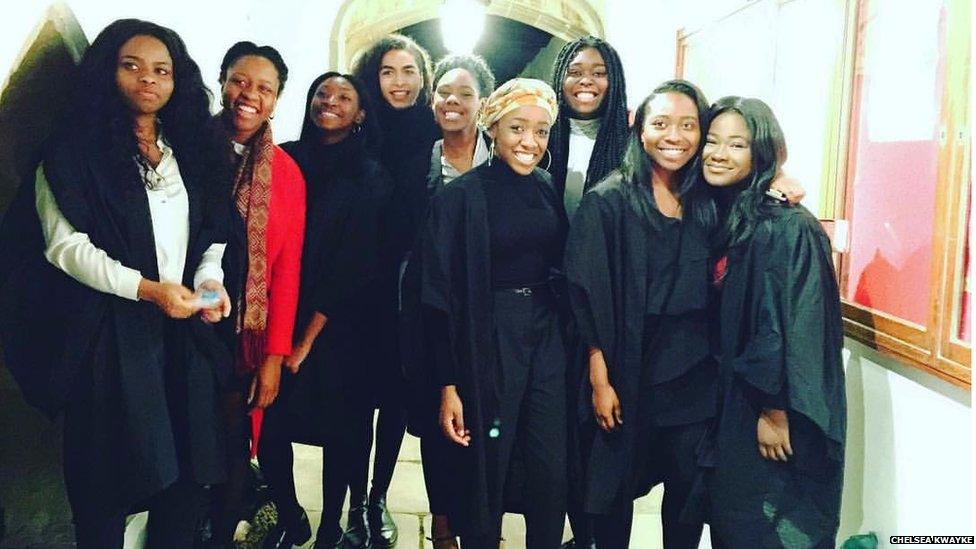What it's like being black and working class at Cambridge
- Published

Chelsea Kwakye is not your typical Cambridge University student.
Her mum is a nurse, her dad works in a post office depot, she went to a state school - and she's black and British.
Newly released data has found that four-fifths of students accepted at Oxbridge between 2010 and 2015 have parents in top professional and managerial jobs.
The figures also show that only three of Oxford's 32 colleges made an offer to a black A-level applicant every year over the same period.
Statistics from Cambridge revealed a quarter of colleges failed to make any offers to black British applicants during that time.
Chelsea, 20, is in her final year studying history at Cambridge.
She told Newsbeat how her university experience had in many ways been shaped by a lack of representation.

Chelsea is the only black female on her university course
"I'm the only black female on my course at the moment, and in terms of males I think there are about two," she said.
"There's so much opportunity to study such a breadth of history from all over the world, Europe, Asia and Africa.
"But it has been difficult at times being taught by a white lecturer and then being the only black student when you're doing a paper in the history of Africa."
"Visibility is definitely a problem. It's almost like a cycle where you don't see many black people at Cambridge or in courses like history so you think it's something that black people don't do."
A spokesman at Cambridge said it currently spent £5m on outreach to encourage students from all backgrounds to apply.
But in Chelsea's experience, she wishes the teachers at her state school had known more about the application process.
"The main resource that I had to use was the internet, so looking at the website online and going on YouTube to find out about the interview process," she said.
"But I remember at college my teachers didn't know a lot about the application process.
"So I think in terms of access it's not just about focusing on prospective students, but also the teachers and how they're encouraging students from state schools to apply."

Chelsea says she wishes teachers at her state school knew more about the Cambridge application process
Chelsea, who is vice-president of the Cambridge University African Caribbean Society, says the lack of representation extends further than race.
"For me something that I do try to emphasise is that black doesn't always mean working class.
"So I think we need to be careful when we talk about this situation as it affects white working-class people too.
"But in spite of this I've had a very good experience - we can't let a lack of representation stop us from getting the best out of our time here."
Find us on Instagram at BBCNewsbeat, external and follow us on Snapchat, search for bbc_newsbeat, external